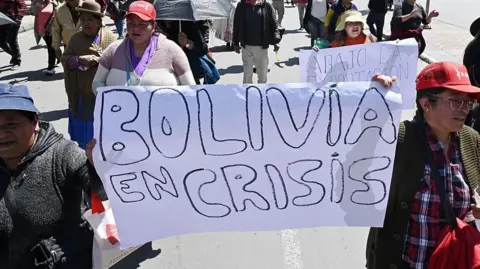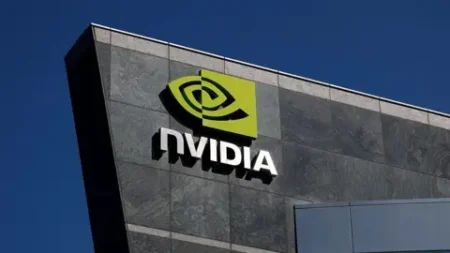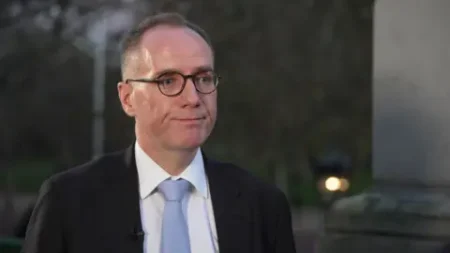In Bolivia, as the country gears up for a pivotal general election, the economic difficulties plaguing the nation have taken center stage. The electorate faces the daunting task of selecting a new leader who will navigate the country through its profound financial turmoil. The president who emerges victorious in the election on August 17 will undoubtedly face a formidable challenge in reversing the adverse economic trends that have been impacting citizens across the nation.
El Alto, Bolivia’s second-largest city and the highest city globally with a population exceeding 100,000 at an elevation of 4,150 meters (13,615 feet), serves as a microcosm of these broader economic issues. The bustling streets of El Alto, filled with vendors selling a variety of goods, have become a focal point for citizens, including Josue Macias, a car mechanic who recently took a break to enjoy an ice cream with his young son. Macias shared his struggles with the soaring inflation rate, which peaked at an alarming 24% in June, as the prices for basic necessities have surged well beyond affordability. Essential items like meat, oil, and eggs have seen their prices double or even triple, forcing families like his to make difficult choices and live with tightened budgets.
The rising cost of living has resulted in significant changes to daily habits. Dining out has become a luxury few can afford, with Macias pointing out that enjoying an ice cream is now a rare treat. The pervasive inflation is attributed to a confluence of factors, including declining natural gas production and subsequent export challenges, which have weakened Bolivia’s crucial foreign revenue streams. The resultant scarcity of US dollars has made importing domestic essentials, such as fuel and food, increasingly expensive and complicated. This has sparked widespread discontent, manifesting in protests throughout the country, as communities express frustration over their deteriorating financial situations.
Taxi driver Gonzalo Ris, navigating La Paz’s pothole-ridden roads, echoed the sentiments of many Bolivians when he discussed the frustration of waiting upwards of six hours to refuel, highlighting the distressing reality of diminishing access to petrol. The crisis has forced many, including taxi drivers, to consider raising fares to cover escalating costs; however, they fear that doing so would drive away customers, compounding their struggles.
Historical context is critical in understanding the current economic climate. For nearly two decades, the Bolivian government had kept fuel prices artificially low through subsidies following the nationalization of the hydrocarbon sector under former President Evo Morales in 2006. However, as the nation now nears the end of its natural gas reserves without adequate investment in new exploration, state energy company YPFB has acknowledged the impending reduction in gas output. This creates an untenable situation for the government, which has previously relied on substantial subsidies that have become unsustainable, with expenditures of $2 billion on fuel support in the previous year alone.
Outgoing President Luis Arce, who is not seeking re-election, has blamed legislative hurdles for the drop in natural gas production, while his political opponents have criticized him for the economic turmoil. Compounding this, the fixed exchange rate of the Bolivian currency has resulted in significant discrepancies with the unofficial market, leading to a proliferation of black market activity that deprives the government of critical tax revenue. Economists caution that unless significant structural changes are enacted, Bolivia will continue to grapple with shortages and economic instability.
Business owners like Alessandra Guglielmi, who runs a food business, are equally affected as they struggle with credit card spending limits and rising prices, leaving them worried about their ability to pay employees and maintain a viable enterprise. The community’s hope lies in the upcoming elections and the possibility of new leadership capable of addressing these pressing economic challenges.
Samuel Doria Medina, a prominent businessman and candidate from the National Unity Front, leads the polls, with Jorge Quiroga from the Freedom and Democracy party following closely. Both candidates face skepticism from analysts like Franklin Pareja, who caution that a mere change in leadership will not resolve the entrenched economic issues facing the country. As Bolivia prepares to cast its votes, many are left grappling with the complexities of their economic reality while yearning for substantive change amidst uncertainty. The tumultuous landscape of Bolivian politics and its economy will test both the resilience of its people and the effectiveness of its next government.











